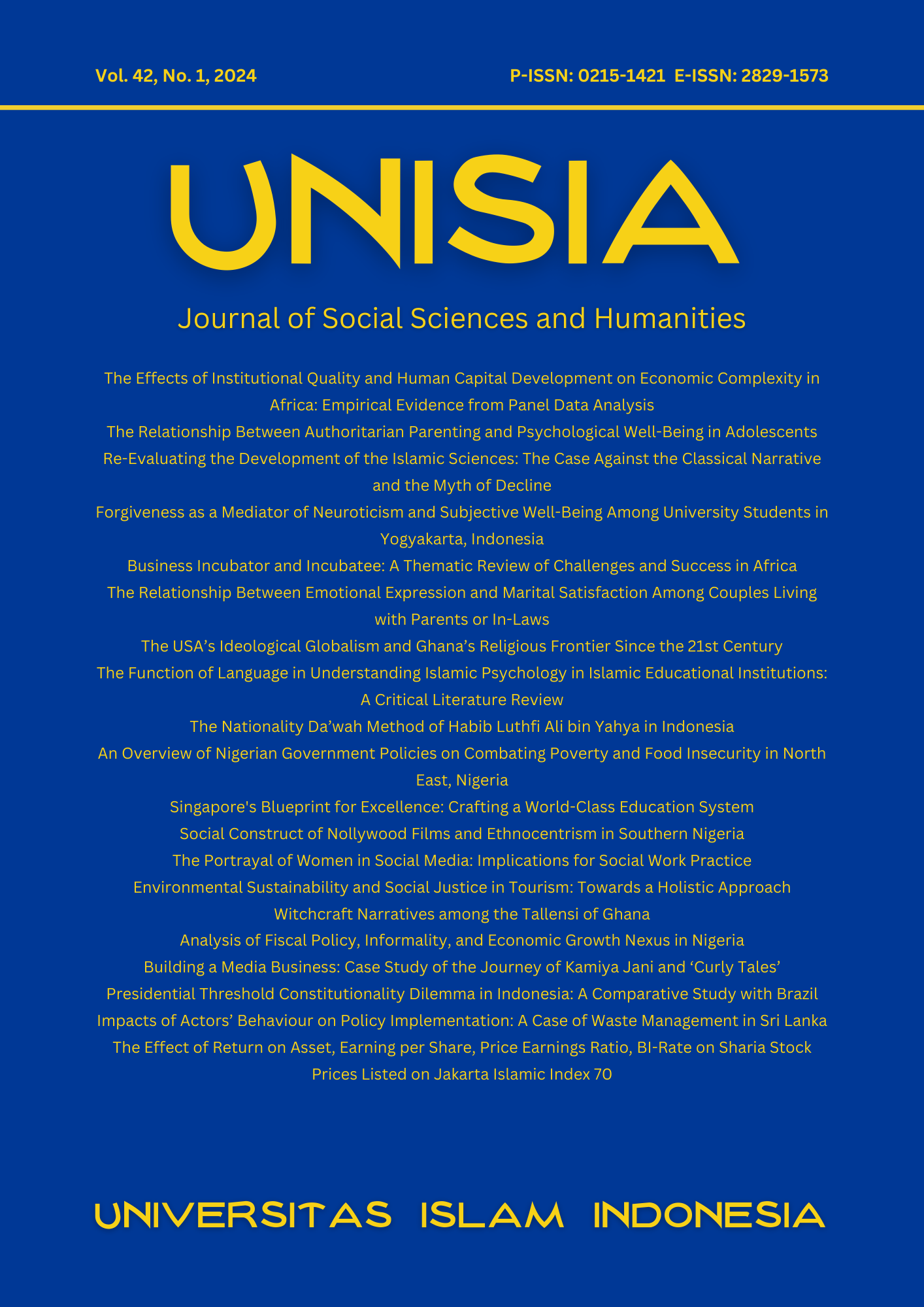Main Article Content
Abstract
This study investigates the impact of fiscal policy on the informal sector and economic growth in Nigeria. In this study, fiscal policy is unbundled into two distinctive categories: government spending and tax burden. The study adopted the ARDL model and bound cointegration test to ascertain whether there is evidence of long- or short-run equilibrium relationships among the core variables. The results show that government expenditure has a positive and significant effect on the size of Nigeria’s informal sector. In the long run, tax or tax burden has no significant effect on the size of the informal sector in Nigeria. This might be attributed to the fact that not a significant number of businesses is captured in the tax net. The results further show that fiscal policy, measured as total government expenditure, has no statistically significant effect on Nigeria’s economic growth in the short run. However, a change in the tax burden has a positive and statistically significant effect on Nigeria’s economic growth. The study recommends that the government implement market-friendly policies that would help integrate the informal economy with the formal economy to boost government tax revenue and enhance fiscal discipline.
Article Details
Copyright (c) 2024 Chiamaka Lucy Okeke, Anthony Orji, Emmanuel Nwosu, Onyinye Anthony-Orji

This work is licensed under a Creative Commons Attribution-ShareAlike 4.0 International License.
- Authors retain copyright and grant the journal right of first publication with the work simultaneously licensed under a Creative Commons Attribution License that allows others to share the work with an acknowledgement of the work's authorship and initial publication in this journal.
- Authors are able to enter into separate, additional contractual arrangements for the non-exclusive distribution of the journal's published version of the work (e.g., post it to an institutional repository or publish it in a book), with an acknowledgement of its initial publication in this journal.
- Authors are permitted and encouraged to post their work online (e.g., in institutional repositories or on their website) prior to and during the submission process, as it can lead to productive exchanges, as well as earlier and greater citation of published work.




